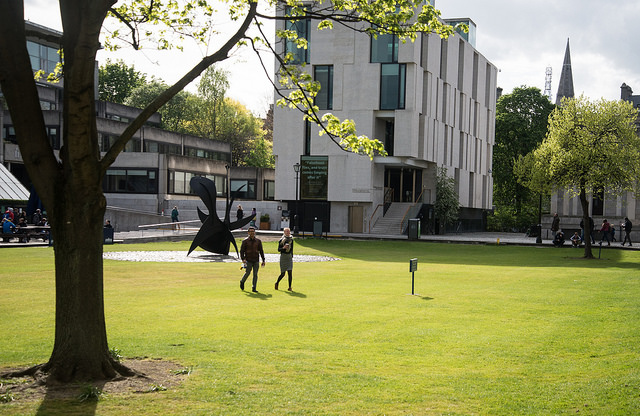Last week, I decided to break a long-term habit and begin my exam revision in week one of term. I dutifully went to the library between some lectures, made a timetable and began preparing for the semester ahead.
My motives were well-intentioned, but ultimately the call of procrastination won out and I gave up after a few days (maybe it was more like hours). Now I’m back in old patterns, safe in the knowledge that no matter how many plans I make, ultimately I won’t follow through on most of my promises, and I’ll still be fine. Adequacy is the new competence.
And this is why I am sceptical of Trinity’s new strategic plan, a copy of which was obtained by this newspaper and reported this week. It’s a well-written and coherent depiction of what the next five years could look like, but there’s no huge urgency to it. And, while it’s comfortable to read, it’s ultimately vague in too many places.
On paper, the plan covers all bases – it aims to create a more diverse College community, as well as tackling postgraduate issues at their roots and pushing for a much-needed reduction in Trinity’s student–staff ratio. And there’s a lot of positive talk about sustainability: universities need to be leading the way on the environment, and it’s clear Trinity sees itself as a torch-bearer. From sustainable transport to biodiverse areas on campus, College has injected responsible growth into many areas of the plan.
It’s notably lacking in a capstone: one big tangible promise that will bring measurable and College-wide change. This might not be a bad thing – unlike its neighbours in University College Dublin, Trinity has eschewed headline a headline promise, opting instead to consolidate the promises it has already made.
And in theory, by forgoing a sensationalised change, College can focus on sorting out the smaller but often more important aspects of academic and student life that students and staff want improved.
But for a plan that talks so much about improving things for its community, its promises to when it comes to actionable policies for staff and students are arguably on the hazy side – particularly given the well-documented issues that have upset many of those who work in the College. Its promise to fight for improved PhD stipends is a welcome pledge, but it’s not one that forces it to act. Many of the little pitches and commitments in the plan are like this: well-meaning and generous-sounding, but lacking in precision. When you have technical and support staff struggling to even get the progressions their contracts stipulate, you need to be doing a bit more to address their issues than the plan does. And its affable plan to create “one Trinity community”, where everyone feels valued and unity reigns, is fantastically vague in a College where many are deeply unhappy.
It’s important to remember, too, that a lot of the points on the plan actually highlight College’s past failures – including its staffing proposals and the promise to finally open Printing House Square after several delays.
Admittedly, it’s hard for Trinity to tackle its problems in the midst of a third-level funding crisis that has forced Irish universities to turn to donors and philanthropists. And Trinity does seem to be fairly confident in its spending plans, given its leadership on philanthropic schemes like Inspiring Generations. That said, its plan to have €300 million in place for infrastructure projects seems a tad ambitious.
Altogether, then, while there’s lots to commend in Trinity’s strategic plan – including a recognition of some of the failures of the last few years – students and staff irritated or upset at the problems they’ve faced are unlikely to find within it the panacea to their issues. College is aiming to do better, but vague promises are the enemy of achievement, and there are simply too many of them here. Change is hard to come by, and harder again to persevere at. And when there’s no admission of any dangerously broken pieces, the motivation to fix the whole system is dubious at best.







